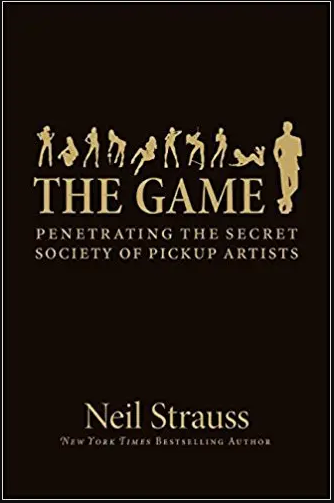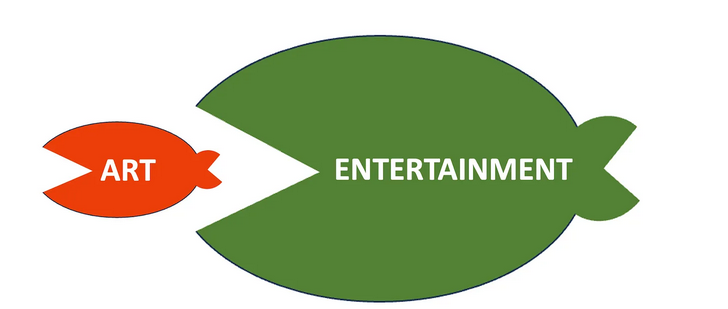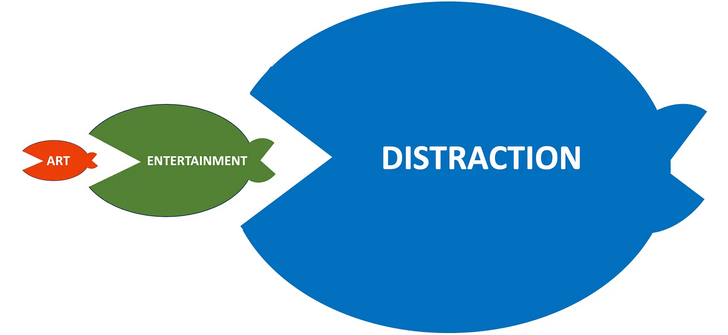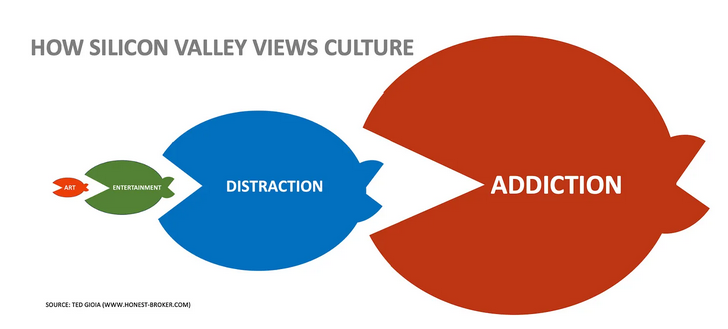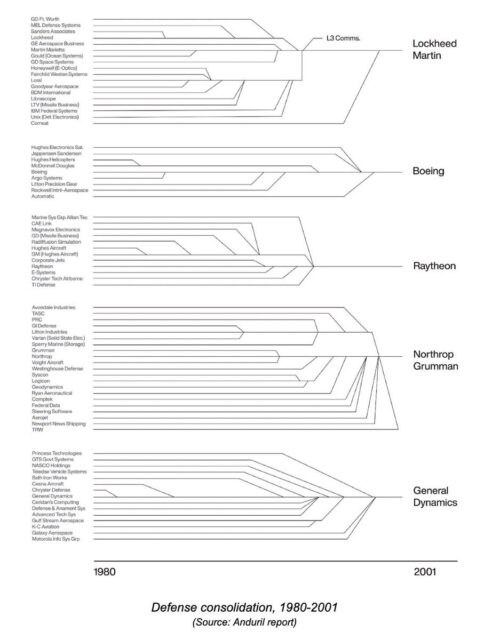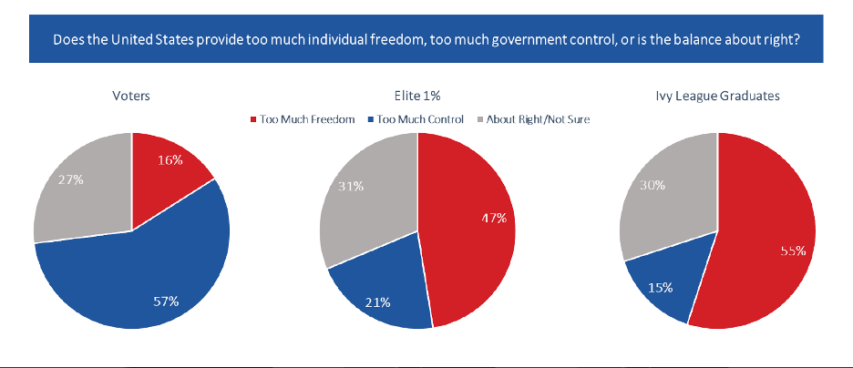Ever met a pro athlete? How about a fighter pilot, or a trauma surgeon? I’ve met a fair amount of all of them, and unless they’re on their very best behavior they all tend to come off as raging assholes. And they get worse the higher up the success ladder they go — the pro athletes I’ve met were mostly in the minors, and though they were big-league assholes they were nothing compared to the few genuine “you see them every night on Sports Center” guys I met. Same way with fighter pilots — I never met an astronaut, but I had buddies at NASA back in the days who met lots, and they told me that even other fighter jocks consider astronauts to be world-class assholes …
The truth is, they’re not — or, at least, they’re no more so than the rest of the population. It’s just that they have jobs where total, utter, profoundly narcissistic self-confidence is a must. It’s what keeps them alive, in the pilots’ case at least, and it’s what keeps you alive if, God forbid, you should ever need the trauma surgeon. Same way with the sportsballers. I can say with 100% metaphysical certainty that there are better basketball players than Michael Jordan, better hitters than Mike Trout, better passers than Tom Brady, out there. There are undoubtedly lots of them, if by “better” you mean “possessed of more raw physical talent at the neuronal level”. What those guys don’t have, but Jordan, Brady, Trout et al do have, is the mental wherewithal to handle failure.
Everyone knows of someone like Billy Beane, the Moneyball guy. So good at football that he was recruited to replace John Elway (!!) at Stanford, but who chose to play baseball instead … and became one of the all-time busts. He had all the talent in the world, but his head wasn’t on straight. Not to put too fine a point on it, he doubted himself. He got to Double A (or wherever) and faced a pitcher who mystified him. Which made him think “Maybe I’m not as good as I think I am?” … and from that moment, he was toast as a professional athlete. Contrast this to the case of Mike Piazza, the consensus greatest offensive catcher of all time. A 27th round draftee, only picked up as a favor to a family friend, etc. Beane was a “better” athlete, but Piazza had a better head. Striking out didn’t make him doubt himself; it made him angry, and that’s why Piazza’s in the Hall of Fame and Beane is a legendary bust.
The problem though, for us normal folks, is that the affect in all cases is pretty much the same … and it’s really hard to turn off, which is why so many pro athletes (fighter jocks, surgeons, etc.) who are actually nice guys come off as assholes. It’s hard to turn off … but as it turns out, it’s pretty easy to turn ON, and that’s in effect what Game teaches.
Severian, “Mental Middlemen II: Sex and the City and Self-Confidence”, Rotten Chestnuts, 2021-05-06.
March 11, 2024
QotD: The profound asshole-ishness of the “best of the best”
March 8, 2024
A fresh look at the PUA “bible”
In UnHerd, Kat Rosenfield considers the original pick-up artist bible, The Game by Neil Strauss, in light of more than a decade of changes in how moderns approach relationships with the opposite sex:
A decade letter, I’m struck by the astonishing prescriptiveness of this line: the notion that any sexual encounter preceded by flirtation, negotiation, or indeed any assessment of a suitor’s desirability should be understood as “less-than-ideal” — and that any man who seeks to make himself desirable to an as-yet-uncertain woman is doing something inherently sleazy. Granted, the anti-Game backlash began in the form of reasonable scrutiny of controversial seduction techniques like “negging” (a slightly backhanded compliment deployed for the sake of flirtation).
But since then it has morphed into something much stranger: the idea that anything a man does to impress a woman, from basic grooming to speaking in complete sentences, should be viewed with suspicion. Behind this is the same low-trust mindset that leads women to treat every date as a hunt for the red flags that reveal her suitor as a secret monster. If he compliments you? That’s lovebombing, which means he’s an abuser. If he doesn’t compliment you, that’s withholding, which also means he’s an abuser. Other alleged “red flags” include oversharing, undersharing, paying for the date, not paying for the date, being too eager, being five minutes late, and drinking water — or worse, drinking water through a straw.
Today, the turn against pick-up artistry can be understood at least in part as a reaction against some of its more prominent contemporary practitioners, including men such as Andrew Tate, who makes Mystery look like a catch by comparison. But it is also no doubt an outgrowth of a culture in which male sexuality has effectively been characterised as inherently predatory, while female sexuality is seen as virtually non-existent. The question that seduction manuals once aimed to answer — “how do I, a shy young man, successfully and confidently approach women?” — is now, in itself, a red flag, one likely to provoke anything from squawking indignation to abject horror to bystanders wondering if they ought to call the police. That you are even thinking of approaching women just goes to show what a troglodyte you really are. What do women want? The contemporary answer appears to be: to be left alone, forever, until they die — or to meet someone in a safe and sanitised way, via dating app … although even that option is increasingly positioned as inherently dangerous.
Meanwhile, I was surprised upon revisiting The Game to realise that the strategies contained within the book are not just useful but mostly in keeping with more traditional dating and courtship advice, from “peacocking” (wearing something eye-catching or unusual that can act as a conversation starter), to passing “shit tests” (responding with humour and confidence when a woman teases you). Even the much-derided negging wasn’t originally designed with the goal of insulting or belittling women, but rather to teach men how to talk to them without fawning and drooling all over the place. In the end, the message of The Game is more or less identical to the one in popular women’s dating guides, like The Rules or He’s Just Not That Into You: that confidence is sexy, and naked desperation is a turnoff.
And while this may just be a function of one too many viewings of the BBC’s Pride & Prejudice (featuring Mr Darcy, a man in possession of £50,000 a year and an absolutely legendary negging game), I wonder if the aim of seduction guides is, paradoxically, to restore our confidence in the tension, the mystery, and the playfulness of courtship in the age of the casual hookup. Even as we rightly rejoice in the fact that society no longer stigmatises women for desiring and pursuing sex, there is surely still something to be said for subtlety — and just because we aren’t consigned to the role of the passive damsel, dropping a handkerchief on the ground in the hope that the right man will pick it up, that doesn’t mean every woman wants to be horny on main. It’s not just that announcing your desire through a megaphone can seem uncouth; it’s also a lot less exciting than the dance of lingering glances, double entendres, and simmering chemistry that characterises a mutually-desired seduction in the making. Certain people might deride this brand of sexual encounter as “less-than-ideal” for its political incorrectness, but it’s wildly popular — in novels, in films, and in the fantasies of individual women — for a reason.
Meanwhile, the contemporary dating landscape is one in which the sheer fun of dating, courtship, and, yes, falling into bed together has been largely back-burnered in favour of something at once formal and immensely self-serious. In a world of handwringing over sexual consent — in which a man just talking to a woman at a coffeeshop can trigger an emergency response protocol — the stakes of sex itself come to seem unimaginably high, a breakneck gamble where one wrong move will result in a lifetime of trauma (or, if you’re a guy, a lifetime on a list of shitty men). Add to this the proliferation of dating apps, which makes the entire romantic enterprise feel more like a job search than a playground, and the whole thing begins to seem not just fraught but inherently adversarial — a negotiation between two parties whose interests are completely at odds, who cannot trust each other, and where there’s a very real risk of terrible and irreparable harm.
March 1, 2024
QotD: Canadian neuroticism
Canada remains unmatched in its ability to turn somebody else’s tragedy into a debate about our own neuroses.
Paul Wells, quoted by Mark Steyn, Western Standard 2005-01-31.
February 28, 2024
QotD: When the rules in the dating market all changed
So far we’ve only been talking about guys, but the gals went through their own version of the same process way back in the days. Indeed, it’s because the girls changed that the guys got into PUA in the first place.
Under the old dispensation, back before the Clinton Era (1988-2001), everyone acknowledged that there were a lot of users and abusers, douchebags and parasites and losers, out there in the world. That being the case, simply being an all-around ok guy with a steady job — what the PUAs came to term “beta providers” — was, in itself, a pretty solid resume in the dating market. “Just be yourself” was every guy’s dad’s advice when it came to dating, and back then it was pretty solid, since it was assumed that the decent job etc. flowed from being a decent human being. And since every girl’s mom was telling her complementary things, the system worked … until it didn’t, and you can date the change precisely: June 6, 1998, the premiere of the HBO series Sex and the City.
[…] Everyone has met one of those “one of the guys”-type girls. They’re great fun, and while you know what I mean when I say they’re not necessarily marriage material as-is, you therefore also know what I mean when I say they really are what feminists all claim to be: Strong, confident women. They are what they are, and they know it, take it or leave it.
The problem is, most women — and, it goes without saying, all feminists — aren’t “strong, confident women”, in the same way the vast majority of guys aren’t naturally “alpha males”. That’s the dialectic I’ve been trying to get at in this series of posts. Sex and the City, as much as every episode needs to be burned and the ashes shot into deep space, was just the manifestation of a long-developing process. Thanks to all that “self-esteem” shit that started in the Seventies, sometime in the Clinton Era a critical mass of young women decided that what they needed was to be “strong” and “self-confident”. But they didn’t know how to do that, because the people telling them this were fat lesbian college professors. Then HBO, sensing a valuable market niche, got into the act …
Sex and the City […] is the gayest show in the history of television. Carrie and the Gals don’t act like women; they act the way women think men act — which is to say, they act like gay men. Recall that the late 1990s also saw an explosion of female “comedians”, whose one “joke” was some version of “I got my period today, but damn, I still crave dick.” (Sex and the City, you’ll recall, was pitched as a comedy). And that’s a serious problem, because as every straight guy has said at least once in his life, being gay would be fabulous if not for the “sex with guys” part. I mean, how awesome would it be (every young man thinks), if you could reorient your whole life around your crotch?
Severian, “Mental Middlemen III: SATC”, Rotten Chestnuts, 2021-05-06.
February 24, 2024
Justin Trudeau is his own Messiah
In The Line, Jen Gerson gets up a full head of steam (to borrow Matt Gurney’s phrase) over the Prime Minstrel’s brief visit to Alberta and what he revealed about his worldview and his sense of his own importance in an interview with a non-mainstream journalist:
Watching Prime Minister Justin Trudeau give an extended interview to Alberta’s Ryan Jespersen is the first time I’ve ever felt visceral concern about the man leading this country.
I genuinely don’t mean this in any mean or partisan sense. What I mean is that this interview raised serious concerns about Trudeau’s headspace, his judgment, and whether or not this man in particular should be leading the country right now.
The interview wasn’t a disaster: Trudeau brought up fair points that deserve more consideration in Alberta, and I will discuss them here.
But on the whole, what I see here is a man who has wildly inflated his own policy achievements while in office. What I see is a man who cannot accept responsibility for his shortcomings, nor for the real decline in both state capacity and quality of life now affecting Canadians. What I see is a man who won’t take accountability for his own unpopularity.
And, most concerning, what I see is a man who thinks of himself as a messianic figure; a man blind to his own partisan ideology and bad behaviour, but hyper attuned to the same in others. A man who divides the world between black hats and white, and cannot admit the possibility of a legitimate alternative viewpoint — and can, in fact, only explain the very existence of such viewpoints by resorting to the belief that all of his critics have been fooled. Fooled. A word he uses over and over and over again, without realizing the contempt this word betrays of his own feelings toward his audience.
This is a prime minister who cannot see the beam in his own eye; who exemplifies the trait — best summed up by National Post columnist Chris Selley and cited often here at The Line — that Liberals are the sort of people who are sincerely convinced they would never do the sorts of things they routinely do, or are in fact currently doing.
Let’s start with the quotes.
Trudeau starts out by noting that right-wing politicians create wedge issues. “A lot of what the right is doing is about stoking up anger without offering any solutions.” And insisting that right-wing politicians have “realized it’s easy to instrumentalize anger and outrage to get people to vote in a way that is not necessarily in their best interests”.
The last two elections called, Mr. Trudeau. They would like to discuss guns, abortion, vaccine mandates, and pretty much every single other ballot question the Liberals have abused to squeak out minority victories by maximizing vote efficiency in crucial central Canadian ridings.
Of course, it doesn’t count when Liberals court disinformation, or stoke irrational fear about their opponents, because when they do it, they have Canadians’ best interests at heart. They’re the good people, you see.
For when you’re on the side of the angels, on a mission to preserve democracy itself from the manipulative wiles of right-wing politicians out to fool people from holding wrong opinions, what means are not justified?
I would also point out that in the same way that it would be insulting and inappropriate for me to delegitimize Trudeau’s authority by arguing that he obtained two weak majorities by fooling Canadians via manufactured outrage on wedge issues, so too is he required to show some deference to the will of the voters of Alberta. One does not have to agree with everything Premier Danielle Smith does or says or proposes to demonstrate respect for the fact that she is the elected leader of the province, a role she secured in a free and fair election. But, alas.
Donna LaFramboise also reacted to the Ryan Jesperson’s interview of Justin Trudeau, saying that he’s like the Borg from Star Trek:
While visiting Alberta this week, Justin Trudeau was interviewed live by Ryan Jespersen, a former Edmonton morning show host whose podcasts are available on YouTube and elsewhere. That’s when our Prime Minister said the following:
There is, out there, a deliberate undermining of mainstream media. There are the conspiracy theorists, there are the social media drivers who are trying to do everything they can to … prevent people from actually agreeing on a common set of facts — the way CBC and CTV, when they were our only sources of news (and Global) used to project across the country at least a common understanding of things.
Mr Trudeau referred to “people on the fringes” who eschew the “mainstream view”. He said his government’s trying to “make sure Canadians understand the importance of not being fooled by misinformation, by disinformation”. Earlier in the interview, he said Albertans were being “fooled by right-wing politicians” and that oil sands workers have “been fooled” by energy companies.
Mr Trudeau is the Borg from Star Trek. He doesn’t respect alternative views. He has zero interest in listening or negotiating. If your analysis conflicts with his, you’re the problem. Renounce the fringe. Fall into line like the other Borg drones. Adopt the common understanding of things being fed to you by the government funded mainstream media.
February 21, 2024
“College attendance is our society’s only meaningful initiation ritual, and it thus assumes an existential importance that renders it near-impossible to replace until an alternative is found”
Johann Kurtz believes the modern university’s survival despite its increasingly irrational and counterproductive actions can be explained as the last modern example of an initiation ritual:
Our understanding of the college system is incomplete. Until we correct this, we won’t be able to fix or replace the system.
First, consider a paradox: college attendance remains near all-time highs [Link], yet the majority of Americans no longer believe it is worth the cost [Link].
The college system seems irrationally resistant to declining value. We must therefore ask: is there an important non-rational reason for college attendance which we have failed to acknowledge?
I believe the answer is “Yes”. College attendance is our society’s only meaningful initiation ritual, and it thus assumes an existential importance that renders it near-impossible to replace until an alternative is found.
Our culture is historically anomalous in lacking explicit initiation rituals.
Mircea Eliade, the great religious historian of the 20th-century, defined initiation rituals as “a body of rites and oral teachings whose purpose is to produce a decisive alteration in the religious and social status of the person to be initiated“.
In philosophical terms, initiation is equivalent to a basic change in existential condition; the novice emerges from his ordeal endowed with a totally different being from that which he possessed before his initiation; he has become another.
— Mircea Eliade, Rites and Symbols of Initiation: The Mysteries of Birth and Rebirth
In Europe, fully expressed initiation rituals were common until the end of the Middle Ages, and in the wider world, until the end of the First World War. Now, they only persist in the West in the sacramental practices of devout Christians (baptism, confirmation, and so forth).
Once, however, these practices were of tremendous importance to us, as Eliade makes clear:
To gain the right to be admitted among adults, the adolescent has to pass through a series of initiatory ordeals: it is by virtue of these rites, and of the revelations that they entail, that he will be recognized as a responsible member of the society. Initiation introduces the candidate into the human community and into the world of spiritual and cultural values. He learns not only the behavior patterns, the techniques, and the institutions of adults but also the sacred myths and traditions of the tribe, the names of the gods and the history of their works …
In the absence of local community rituals, the universities are a natural site for their replacement. These have always been religious sites, although the nature and expression of this religion has transmuted over time.
H/T to Bruce Gudmundsson at Extra Muros for the link and his additional comments:
This hypothesis accords with the argument, made often in this blog, that education and schooling are two very different things. At the same time, it suggests that one of the definitive purposes of Extra Muros, the encouragement of young people to eschew the conventional college experience in favor of a combination of practical pursuits and systematic self-tuition, may be a fool’s errand. After all, if four (or five or six) years of drinking second-rate beer from red plastic cups does for the office-bound folk of North America what fear-filled rites of passage do for members of the bone-in-the-nose set, then I might well be sailing against the wind.
Upon second thought, I find hope in the possibility that the parasite (or, to be more precise, the cancer) promoted by d’Angelo, Kendi, and company will soon deal the coup de grâce to its mortally-wounded host.
The coming-of-age ordeals of warrior tribes demand that boys who would be men prove possession of such martial virtues as courage and self-command. The rites-of-passage of the modern middle classes, however, require that postulants demonstrate a mixture of conformity, conscientiousness, and, to a diminishing degree, intelligence. (Readers familiar with the oeuvre of economist Bryan Caplan will recognize the source of this troika. However, it is worth noting that, while Professor Caplan will occasionally tip his hat in the direction of the campus-based building of basic brain-power, he devotes far more attention to the collegiate cultivation of the two components of Sitzfleisch.)1
The cult of Marx, Mao, and Marcuse demands complete compliance, not only with its basic tenets, but also with any changes in the party line that, from time to time, may occur. (I am old enough to remember the days when campus commies of the caucasian persuasion could don dashikis without facing charges of “cultural appropriation”.) Thus, those who sit at the feet of the acolytes of critical theory learn an art of great value to people who wish to thrive in a large organization, that of discarding the old hat, and putting on the new one, at just the right time. (Think, if you will, of the mid-level employees of the McDonalds Corporation, who, over the course of the last four decades, were obliged to alter their opinion of the McRib sandwich more often than they changed the oil in their cars.)
1. Bryan Caplan, The Case Against Education: Why the Education System is a Waste of Time and Money (Princeton: Princeton University Press, 2018), pages 9-21.
February 20, 2024
February 16, 2024
QotD: The PUA (Pick-up artist)
If you’ve read The Game […] you can’t help being struck by how expensive all this must be, both in time and money. Mystery, the first PUA guru who kicked the whole “community” off by offering classes, charged something like $1-5000 for a week-long class — serious money back then, and that’s before you consider that guys were flying in from all over the country, indeed from all over the world, to take them. That aside, consider what it would take to hit at least three Sunset Strip clubs a night, three nights a week. I’m well past my bar-hopping days, but when I was in grad school, the “trendy” clubs in College Town charged $10-20 just in cover …
This was two decades or more ago, and College Town was in Podunkville. Imagine what they’re charging to get into the hot nightspots on the Sunset Strip. I bet just getting into the clubs costs these aspiring PUAs a couple hundred bucks, every week, for months. Then there’s all the other stuff Strauss said he did to transform himself into “Style” — laser-whitening his teeth, tanning beds, classes on elocution and posture, a whole new (and ever-changing) wardrobe, surfing. I can’t even begin to calculate it, but at one point he and three other PUAs are living in a Hollywood Hills mansion that once belonged to one of the Rat Pack — monthly rent, $50K. Then throw in the fact that all of this takes a tremendous amount of time, and consider the toll that must take on your body. I hit the sauce pretty hard back in my day, and one of the reasons I stopped was that the hangovers really started hurting — one night of bar-hopping now, and I’d be bedridden for days. I’m getting exhausted just typing this, and do you see what I mean?
And all this without getting a single girl. I think everyone here has been in at least one relationship, so we know that no matter how casual you keep it, bare-bones relationship management, even of pump-and-dumps, takes a fairish bit of time (so I’ve heard, anyway). I might be misremembering, but at one point Strauss claims he was managing something like four or five more or less long-term hookups simultaneously. I don’t think there are enough hours in the day …
Much better, then, to just say you’re a PUA. To do it Tyler Durden style, in other words. I’m pretty sure you could sell the illusion of yourself as a hardcore PUA with one not-too-expensive night on the town. Just dress up like one of these goobers, hit up one bar, and take selfies with a bunch of girls, making sure to alter the shot angles enough that no one can tell you’re in the same bar the whole time. Post one or two stories of your conquests a week, and you could portray yourself as some kind of pickup master in no time at all.
Of course, that’s if you want to consciously fake it. I have no idea what “Tyler Durden” was doing, not being a sociopath myself, but as Strauss tells it, his disciples got snookered into it. They really did want to learn how to pick up girls, but since dressing up like a PUA and talking about getting girls is much easier than actually getting girls, a night on the town with those guys ended up being an endless series of “approaches”. Again, it’s how you define “effective”, and Strauss lets the cat out of the bag a bit when he informs us of the PUA’s weird lingo for “closing”. There’s the “f-close”, of course, which should be obvious, but there’s also the “kiss close” and even the “phone number close” … and both of those count as complete successes.
Severian, “Mental Middlemen”, Rotten Chestnuts, 2021-05-05.
February 13, 2024
Step aside, puny humans, here comes “the new Marxist Homo tabularasa“
At Postcards from Barsoom, John Carter considers what might occupy the god-shaped space in the new secular religion of wokeness:

Ryan T. Hancock, via Postcards from Barsoom
It’s trite to observe that the Great Awokening is a fundamentally religious phenomenon, representing a sort of secular Abrahamic heresy mining the latent guilt swirling within the hearts of post-Christian whites and thereby activating the messiah complexes of the Anglosphere’s Protestant populations, who have exhibited other similarly self-destructive enthusiasms throughout their ethnoreligious histories. It’s trite because it’s so obviously apt, but it raises an obvious question: if Woke is a cult, what is its god?
I don’t mean whichever symbols or causes they flock to from one moment to the next. These are merely mortal embodiments of archetypal forms, rising perhaps to the level of heroes or saints should their celebration become widespread enough. George Floyd was not deified but beatified, not because of anything he did in his life (which no one really argues wasn’t a sewer of petty criminality), but because in his death he was filled with a holy spirit of some kind. What spirit was that?
One answer to this question is provided in the title of Lorenzo Warby‘s ongoing series “Worshipping the Future“. As Warby explains in “The Deep Appeal of Marxism“, progressivism is besotted with the transformational future, an imaginary utopia qualitatively different from and superior to the Tartarus of antiquity in every way – an Elysium of peace, stability, equality, wealth, ease, comfort, and bliss, existing in a perpetual state of liberatory ecstasy in which the war, chaos, poverty, strife, suffering, and misery of the past have been permanently eradicated.
As Warby writes, there is no limit to the delights of the transformational future:
As a thing imagined, it can be imagined to be as perfect as one likes. This means politics grounded in an imagined future can be as morally grandiose as one likes, with whatever moral urgency goes with such imaginings.
This is deeply intoxicating.
Grounding one’s politics in an imagined future also provides huge rhetorical advantages, precisely because said future is as perfect as one wants it to be. Anyone who wishes to defend some actually existing thing has the problem that it will be the product of trade-offs and human failings.
An “imagined future” believer, by contrast, can just wish all that away for political purposes while hanging current imperfections on those who wish to defend what exists. In any contest between the actual and the imagined, the imagined sparkles ever so more brightly.
This utopia is of course always at some point just over the horizon. Just one more revolution, bro, and we’ll reach the Promised Land! Just one more gulag, and we’ll get to utopia, I swear! C’mon bro, just one more mass grave, we’re almost there, you gotta believe me!
There is a fatal epistemic flaw at the heart of this faith: no information can be extracted from the future, because information can only be obtained from the past.
Not only does the imagined future have no reality test, it distorts one’s use of the information to which we do have access. The past is profoundly discounted by its distance and difference from the imagined future. It is both morally discounted — a record of sin and depravity — and structurally discounted, because it has not undergone the social transformations that are imagined to change everything.
If the imagined future is a secular heaven, then the past becomes a moral hell from which we must escape. All information from it is tainted as profoundly impure and corrupt: the record of sin.
This means that when policies fail to obtain the desired result, for example erasing ethnic and sexual distinctions through affirmative action and thereby producing the new Marxist Homo tabularasa, no corrective action is possible. Policy failure exists in the past, which is ignored as sinful, and which therefore cannot be learned from. The only permissible answer to failed progress is to progress faster, with the only possible consequence being to fail harder.
February 9, 2024
You can’t pro-actively synergize action-oriented metrics in the heat of battle
No, I’m not sure if that headline makes any sense, as I was never particularly receptive to the latest buzzwords of any given management fad that went through from the 70s onwards. They all seemed to share a few characteristics along with a bespoke sheaf of buzzwords, PowerPoint slides galore, and lots of spendy courses you had to send all your employees to endure. Is there anything more dispiriting to staff morale than a VP or director who’s just returned from a week-long training seminar in an exotic location on this year’s latest “revolutionary” “transformational” management fad?
It’s bad when companies that make widgets or smartphone apps or personal hygiene products fall for these scams, but it’s terrifying to discover that your military isn’t immune … and in fact revel in it:
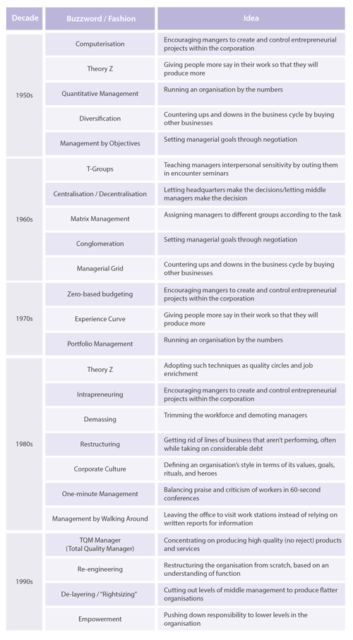
Image from “Fads and Fashions in Management”, The European Business Review, 2015-07-20.
https://www.europeanbusinessreview.com/fads-and-fashions-in-management/
We spent these last few decades since the fall of the Soviet Union weaving a comfortable web of CONOPS and implemented “efficiencies” constructed of consultant-speak, weekend-MBA jargon, and green eyeshade easy-buttons bluffed from the podium by The Smartest People in the Room™ to an audience on balance populated by people who already had the short list of jobs they wanted once they shrugged off their uniform in a PCS cycle or two.
Agree, endorse, parrot, prepare …. profit!
War is New™!, Revolutionary™!, Transformational™!. Hard power is Offset™! If we change a bunch of simple words in to multi-syllabic cute acronyms … then the future will be ours, our budgets will be manageable, and our board seats will be secured! Efficiency to eleventy!
Facing the People’s Republic of China on the other side of the International Date Line … how efficient do you feel? How effective?
Something very predictable happened in our quarter century roadtrip on the way to Tomorrowland; we realized instead we wound up on Mr. Toad’s Wild Ride instead.
I would like the record to show here in 2QFY24 that this exact problem was discussed in detail back when I was a JO in the mid-1990. This is not shocking to anyone who is wearing the uniform of a GOFO. They lived the same history I did.
We knew we were living a lie that we could sustain a big fight at sea. An entire generation of Flag Officers led this lie in the open and ordered everyone else to smile through it. Ignore your professional instincts, and trust The Smartest People in the Room™.
Once again, Megan Eckstein brings it home;
If U.S. military planners’ worst-case scenario arose in the Pacific — having to defend Taiwan from a Chinese invasion — American military forces would target Chinese amphibious ships.
Without them, according to Mark Cancian, who ran a 2022 wargame for the Center for Strategic and International Studies that examined this exact scenario, China couldn’t invade the neighboring island.
…
U.S. submarines would “rapidly fire everything they have” at the multitude of targets, Cancian said, “using up torpedoes at a much, much higher rate than the U.S. has expected to do in the past.”
Navy jets, too, would join in — but they’d run out of Long Range Anti-Ship Missiles within days, …
It’s this nightmare scenario that’s driving the Navy to increase its stockpile of key munitions: the LRASM, the MK 48 heavyweight torpedo, the Standard Missile weapons and the Maritime Strike Tomahawk, among others.
Over a decade after the Pacific Pivot, a couple of years after the US Navy became the world’s second largest navy after being the worlds largest for living memory of 99% of Americans, and two years after the Russo-Ukrainian War reminded everyone that, yeah … 3-days wars usually aren’t.
And the defence industries of the 1980s and 90s have all swallowed up smaller competitors — again following “normal” business practices of the time, seeking economies of scale and manufacturing efficiencies and closing down less-profitable assembly lines or entire lines of business.
Let’s go back to SECDEF Perry’s 1990s “Last Supper”, you know, the one that was all about the efficiencies of consolidation of the defense industry.
Three decades later, what is the solution to the strategic risk we find ourselves in due to our inability to arm ourselves?
… “the bottleneck is rocket motors” because so few companies are qualified to build them for the United States, Okano explained. To help, the Navy issued a handful of other transaction agreement contracts to small companies who will learn to build the Mk 72 booster and the Mk 104 dual-thrust rocket motor so prime contractors have more qualified vendors to work with, she added.
LOLOLOL … what “small companies?” That ecosystem is “old think”. If we need to go back to that structure, that will take decades not just to build, but decades of a viable demand signal.
Looks like we have started that as “small companies” perhaps repurpose part of their company to a military division. If we can just stop them from being gobbled up by the primes, it might be nice to return to a more robust, competitive ecosystem. Soviet-like consolidation and McNamaraesque efficiencies got us here, perhaps time to try something old as new again.
Nothing is less efficient to go to war with than a military designed for an efficient peace.
February 6, 2024
The Sky People hold very different beliefs to those untouchable Dirt People
Rob Henderson says that the gap is “Grand Canyon-sized” between ordinary Americans and the Ivy League grads who cluster at the top of every progressive organization:
55% of Ivy League graduates believe that the U.S. “provides too much individual freedom” compared with just 16% of ordinary U.S. voters.
Back in 2019, as I was developing what became the luxury beliefs framework, I read a recently issued chapter published by Cambridge University Press titled “Why Are Elites More Cosmopolitan than Masses?”
Authored by a team of social scientists, this 2019 paper reports stunning gaps in political views and outlooks between elites and ordinary people in various western countries.
In the introduction, they suggest that elite attitudes are expressions of cultural capital. That is, the large gap in views between elites and everyone results from elites drawing symbolic boundaries between themselves and the provincial masses.
Indeed, another report found that 65 percent of Americans believed that the most educated and successful people in America are more interested in serving themselves than in serving the common good. This view is held across the board — across age, gender, race, political party, and ideology.
The authors of the 2019 chapter write:
Mastering intricacies of gender and race relations discourse and behavior has become a marker for belonging to the cosmopolitan class, in a similar way that tastes for classical music and art were markers of bourgeois culture in the 19th and 20th centuries.
Interestingly, the researchers find that social background and ideological affinities account for elite similarities more so than educational attainment. This might be one reason why, despite obtaining the same degrees from the same institutions as many elites, I still retain an outlook reflective of my provincial upbringing.
Following my experiences in the Los Angeles county foster system, my adoptive family and I settled in a dusty lower-class town in the northernmost region of California—a place just as provincial as any rundown neighborhood in flyover country—where I spent most of my youth.
The authors of the paper measured the opinions of elites (those holding the highest positions in each sector) across various fields including politics, finance, academia, and media, as well as the opinions of ordinary people.
Relative to the masses, elites are more likely to agree with statements such as “We should do everything possible to fight climate change, even if it slows economic growth.”
And elites are more in favor of allocating authority not to local or national governments, but to global organizational bodies (e.g., the U.N.).
The researchers also found that elites are significantly more pro-immigration, as measured by the extent to which they agreed with statements like “When jobs are scarce, employers should give priority to people of [this country.]”
I thought about those results for a long time. Especially as I came across another study indicating that educated people are more likely to express prejudice toward immigrants who are described as highly educated, relative to less educated, and are therefore seen as job competitors.
Among university students, attitudes toward immigrants were most negative when the immigrants had a university education, and most positive when the immigrants had little to no formal education. It’s nice for the educated class when immigrants provide cheap hired help and open interesting restaurants. They’re less excited when immigrants are competing with them for the same jobs. If thousands of people with bachelor’s and postgraduate degrees from, say, China and India, were unlawfully entering the U.S. each day, my guess is current elite attitudes around border security would be very different.
In a way, it’s rather reassuring that the Sky People are still demonstrably human, based on the change in opinions when it’s their ox being gored …
February 3, 2024
Justin Trudeau doesn’t seem to understand why he’s losing so much support from voters
Tailing on to the previous article, here are some thoughts from The Line‘s Matt Gurney about the strengths and weaknesses of Justin Trudeau — and I despise the man, but I accept he’s a very good politician — and the odd fact that he can’t seem to grasp the reason for his ongoing fall in popularity among Canadians:
… it was a specific comment by the PM that really stayed with me. It’s this:
… Trudeau does believe, however, that Liberals are up against something relatively new in this climate, which he calls opinion-as-identity politics.
“I don’t think that was a feature too much of other times in politics — where what you think about something actually creates the circles and the people that you actually associate with, and it defines who you are.”
I’m going to let Tom Cruise in the delightful and little-remembered sci-fi film Oblivion convey my reaction to the PM’s comment there:
This is a statement that I’m having a hard time processing, and that I’ve been reflecting on for weeks, because there is no version of Prime Minister Justin Trudeau — at least, in my understanding of the man — that is dumb enough to believe such a silly thing. Dividing ourselves into tribes identified by our opinions on stuff is exactly what human beings do, and have always done. The first monkey to get out of a tree and stand on solid ground and think to themselves, “Hey, it’s kind of cool down here,” was undoubtedly, immediately ostracized by all the other monkeys that thought that life atop the trees could not possibly ever be beaten.
And we’ve been finding new things to disagree about, and kill each other over, ever since. Which skin colour is best, which holy book contains the real guide to salvation, which ideology is the path to true human enlightenment … human beings have slaughtered each other by the millions over this stuff for as long as there have been human beings. Sure, every so often we squabble over resources. Who gets to control which oil field or prime cattle pasture and the like. But most of our nastiest fights have been over opinions about stuff. Maybe substantive matters, things like racial identity or religious affiliation, but still just opinions. And if we’re honest, some of the opinions have been pretty dumb. Not worth killing or dying over.
Hell, as I was thinking about writing this column, my young son very solemnly and seriously told me about some drama on the schoolyard he’d been part of. It turns out some kids who are normally good buddies had come to tears and almost to blows because … they liked different NFL football teams, and tensions were running high during some of the recent playoff games. I know it’s easy to dismiss this as just boys being boys, but I actually think it’s pretty useful here as an example of humans being humans. There is nothing that symbolizes the way we simian-brained weirdos approach life better than imagining a bunch of thinking, feeling people becoming emotionally overwhelmed because of a disagreement over which collection of overpaid athletic prodigies should advance while a different collection of overpaid athletic prodigies wearing another colour shirt heads home for a long break.
It’s ridiculous. But it’s us. It’s humans. Through and through. I’m a sports fan, too, and I’m well aware of the fact that sports are one of those handy things we use as a society to channel our base, primal, aggressive instincts. I get up and cheer wildly when the Leafs beat the Canadiens because it satisfies some part of my brain, and millions of other brains, that would probably otherwise result in Toronto and Montreal raiding each other for chickens. Or worse. Human beings are constantly deciding stuff and then sorting whole populations accordingly, and then getting emotionally invested in those divisions. I like it more when we channel it into sports rivalries and fights over who has the superior bagel.
How can the prime minister not understand this about us?
January 30, 2024
The foul “nudgers” are at it again at Cambridge
Christopher Gage reports on a recent fun-reducing experiment by paid psychological meddlers at Cambridge University:

“Wineglass” by quinn.anya is licensed under CC BY-SA 2.0 .
Researchers found they could “nudge” people into drinking less wine when they denied the unsuspecting blighters a large 250ml measure.
Last summer, these wholly well-adjusted people convinced 21 Cambridgeshire pubs and restaurants to offer only small or medium glasses of wine. The result left the boffins breathless. But sadly, not in the medical sense of the word.
When denied a large, vivifying glass of wine, the subjects drank eight percent less than usual, and the pubs didn’t lose any money — smaller measures cost more. Puritans: two. Oenophiles: nil.
The usual suspects cooked up this obscene waste of time and money. Professor Dame Theresa Marteau, director of the behaviour and health research unit at Cambridge University, boasts lurid form in control freakery.
Her previous studies read like an almanac of neurotic impulses. The mad mullah dreams of shrinking plates and sinking sodas. This finger-wagger-in-chief obsesses with the vinous, porcine masses and what they may slip into their faces when she’s not looking. Marteau chillingly laments that large wine glasses “increase the pleasure of drinking wine”.
The fundamentally nosey swear these are the first murmurs of Utopia. Next, they’ll bend boozing regulations into a truncheon to batter the gastronomic swine over its head. They don’t stop. First, they shrink the large glass. Then, the medium glass affects as the large. What happens next? Take a wild guess.
This is not the work of some rogue Colonel Kurtz. One Daily Telegraph writer seized on the study. Employing the presumptuous “we” beloved of oppressive minds, they offered tips to help us drink less, assuming we drink large wines only because we are weak-willed effigies desperate for professional helpers to show us what’s best for us.
Advocates of “nudging” drive themselves senseless over this psychological thimblerig. The potential to correct “undesirable” behaviour proves too great to resist. They are a species of featherless biped with which I share nothing but the right to a trial before a jury of my peers.
As I write, I’ve just returned from a five-mile jaunt with 33 pounds strapped to my back. Loading a bag with weights burns double the calories. Therefore, whatever I do after that trek is my business alone. On my desk is a large glass of Portuguese red blend. Beside that soul-tingling measure sits a smouldering, hand-rolled, menthol-tipped cigarette.
Why strangers stake their mental well-being on what others put into their bodies, I will never know. Why they wish I’d sit here choking on sparkling water and its vegetable equivalent — celery — I’ve not the foggiest of insights. All I do know, friends, is that I am not the one in dire need of a few sessions with a psychoanalyst. My professional advice: Seven letters. Vulgar slang. A phrasal verb rhyming with “duck cough”.
January 26, 2024
Why isn’t Trump Derangement Syndrome or Biden Derangement Syndrome in the DSM?
At Astral Codex Ten, Scott Alexander wonders if the kind of political insanity that takes over the lives and personalities of so many Americans should qualify as a kind of mental dysfunction:
Everyone knows politics makes people crazy. But what kind of crazy? Which page of the DSM is it on?
I’m only half joking. Psychiatrists have spent decades developing a whole catalog of ways brains can go wrong. Politics makes people’s brains go wrong. Shouldn’t it be in the catalog? Wouldn’t it be weird if 21st century political extremists had discovered a totally new form of mental dysfunction, unrelated even by analogy to all the forms that had come before?
You’ll object: politics only metaphorically “makes people crazy”; we just use the word “crazy” here to mean “irrational” or “overly emotional”. I’m not sure that’s true. Here are some stray findings that I think deserve to be synthesized:
- Very smart people lose basic reasoning abilities when the topic switches to politics. This isn’t just a truism, it’s been demonstrated in formal experiments. You can give people simple math/logic problems and confirm that they get the right answers. Then you can change the wording from “five apples and eight oranges”, to “five Democrats and eight assault weapons” and these same people will flounder and say idiotic things.
- Paranoia and conspiracy theories, considered psychotic symptoms in individuals, are almost the norm in politics. Forget the people who believe that Biden/Trump/FEMA/whoever literally want to put them in camps. The coastal elites/the patriarchy/the rich/the liberal media may all be real groups with agendas different from yours, but the way some people think about them actively plotting to dismantle everything good in the world shades into paranoia (if you don’t believe this about your side, at least consider it on the other!) I’m not just making fun of other people, I find myself making this mistake constantly.
- Politics can create such strong emotions that they impair normal social functioning. People mock college students who demand trigger warnings whenever they have to listen to a conservative speaker. But I’ve talked to some of these college students and they’re not making it up — they find listening [to] a politically discordant opinion is as unpleasant as (let’s say) a claustrophobic person sitting in an enclosed space. If you’re a right-winger who feels tempted to dismiss this response, imagine having to sit through a six-week diversity training workshop and give the answers the lecturer wants or else you’ll fail. Obviously you could just fake the right answers and fly through easily, but doesn’t something about this still sound profoundly enraging and invalidating on a deep level? Enraging even beyond the level of (for example) having to fake the right answers in a class on acupuncture because you’re doing an undercover investigation or something?
- Politics can become something between an addiction and an obsession. People can spend hours every day watching cable TV or scrolling through their Twitter feeds, trying to stay abreast of the latest outrage the other side is perpetrating. To be clear, they hate this. Each time they hear another outrage they’re somewhere between dejected and enraged. But they keep doing it. For hours a day. They will justify this with claims like “I need to stay informed so I can make a difference”. Then they will forget to vote because they were tired on Election Day.
In any other situation, a condition with impaired cognition, psychotic symptoms, emotional instability that impaired normal functioning, and associated addictions/obsessions would qualify as a mental disorder. So again, which mental disorder is it?
This post is about the possibility that it might be trauma.

